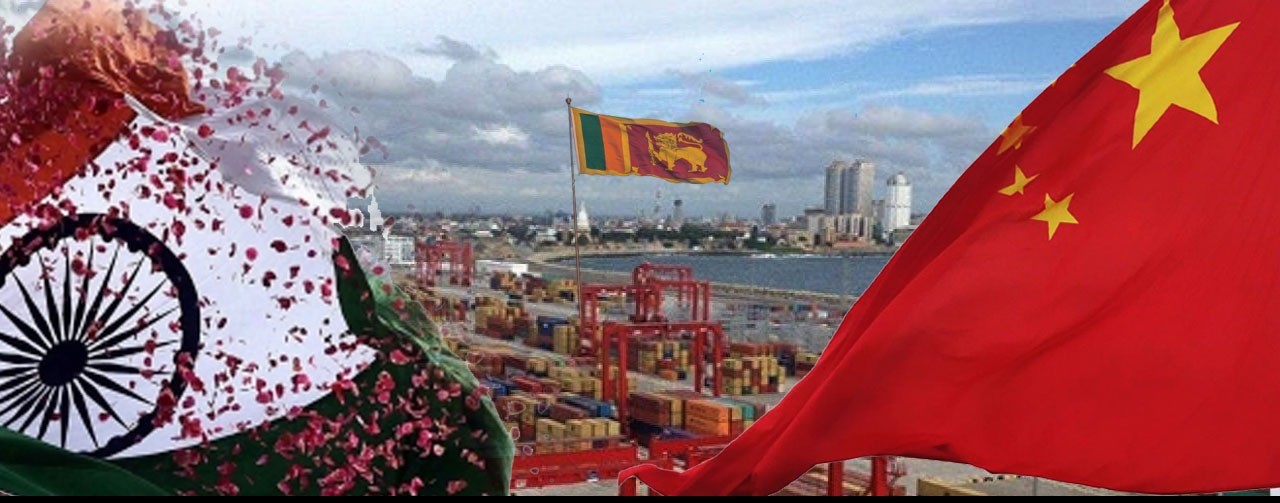India has Sri Lanka’s ear on security matters, observers say – citing Colombo’s appreciation for its neighbour’s help during its recent economic crisis – even as the South Asian island nation’s new president strives to balance ties with New Delhi and Beijing.
Sri Lanka elected Marxist lawmaker Anura Kumara Dissanayake as president on last month, marking a decisive shift away from the old political elite that many blamed for the country’s economic collapse.
Dissanayake triumphed over opposition leader Sajith Premadasa and former president Ranil Wickremesinghe, who had assumed power two years ago after the economy hit rock bottom.
The election came as Sri Lanka strives to recover from a severe crisis marked by shortages of essential goods, including food, medicine, and fuel, sparking widespread protests in 2022 that ultimately forced former president Gotabaya Rajapaksa to resign and flee the country.
Sri Lankan leaders – including Dissanayake – must adeptly balance relations between India, China, and other major powers such as the United States and Japan, said Neil Devotta, professor of politics and international affairs at Wake Forest University in the US.
Although his political background rooted in Marxist ideology, Dissanayake has evolved into a “practical nationalist”, focused on foreign policies that prioritise Sri Lanka’s interests, Devotta said.
With an eye on revitalising the economy and easing austerity measures that have hurt the poor, Dissanayake is likely to pursue domestic and foreign policies that enhance economic stability.
“India is likely to have an advantage in this regard given its proximity and the possibility for Sri Lankans to link with the economic developments in South India,” Devotta said.
While Dissanayake’s National People’s Power (NPP) alliance has traditionally harboured “warmer feelings for China over India”, Devotta said that anti-India sentiment was “much diminished compared to the past”, largely due to the gratitude felt for Delhi’s extensive support during the island’s economic crisis.
India provided around US$4 billion in financing during the unprecedented crisis brought on by mismanagement and corruption, enabling Sri Lanka to sustain essential imports and maintain its foreign currency reserves.
Earlier this year, Indian companies secured agreements in sectors ranging from energy to maritime logistics – including a 20-year power purchase agreement involving two new wind power stations in Sri Lanka’s north – further solidifying economic ties.
However, Dissanayake has previously expressed intentions to cancel the controversial wind power project with India, claiming it was corrupt and detrimental to Sri Lanka’s interests.
Devotta warned that any attempt to renegotiate these deals “while making even minor concessions to China … would upset India”.
Rajni Gamage, a research fellow at the National University of Singapore’s Institute of South Asian Studies, said Dissanayake, 55, was perceived to be closer to China, due to the Janatha Vimukthi Peramuna’s (JVP) historical and ideological affinities with Beijing.
Dissanayake’s socialist NPP coalition includes the JVP, a left-wing political group established six decades ago to promote a communist revolution in postcolonial Sri Lanka.
Despite these affiliations, Gamage expects Dissanayake to be “pragmatic and engage with Delhi”, acknowledging its vital role during the economic crisis. Given the increasing presence of Chinese naval vessels in the region, the NPP has indicated a willingness to consider India’s security concerns.
Both the NPP and Dissanayake have stressed their commitment to protecting the Sri Lanka’s core interests.
“However, the real test is when such a situation or event arises, where the president is forced to make a call on accommodating one country’s interests that could trigger security-related anxieties over the other”, Gamage said.
In January, Colombo declared a one-year moratorium on foreign research ships entering its waters, responding to Indian concerns over Chinese vessels docking nearby.
Chinese research ship Shi Yan 6 spent several days port in Colombo in October last year, and in 2022, the navy vessel Yuan Wang 5 docked at Hambantota in southern Sri Lanka, raising alarms in Delhi that these ships could be used for regional surveillance.
Sriparna Pathak, an associate professor of Chinese studies and international relations at the O.P. Jindal Global University in India, said Sri Lanka under Dissanayake was likely to enforce a ban on Chinese vessels regardless of external pressures.
“[The government] will ensure that these spy vessels from China, bulldozing over Sri Lankan interests merely due to the fact that Hambantota is now China’s, do not get entry into Sri Lankan exclusive economic zones,” she said.
The Hambantota deep water port, the nation’s second-largest, was leased to China Merchant Ports for 99 years in 2017.
Pathak expects that Sri Lanka will maintain the moratorium on ships, with Foreign Minister Ali Sabry indicating in July that the situation would be reassessed at the end of the year.
India had anticipated Dissanayake’s victory, Pathak noted, highlighting the Asian giant’s engagement with all political parties in Sri Lanka, including invitations extended to JVP leaders like Dissanayake to visit Delhi.
In February, Dissanayake met with India’s External Affairs Minister S. Jaishankar, later sharing on social media that they had a productive discussion about deepening bilateral relations.
“Sri Lanka in the past has benefited economically from its ties with India, and Dissanayake will adhere to the same policy,” Pathak said.
India stands as Sri Lanka’s largest trade partner and one of its top investors, with total foreign direct investment surpassing US$2.2 billion.
In 2021, India accounted for the largest share of foreign direct investment at US$142 million, focusing primarily on sectors such as petroleum, manufacturing, real estate, telecommunications, and banking and financial services.
Maria Siow is a long-time China-based correspondent and analyst with keen interest in East Asia. Maria has a masters degree in international relations.


